- Home
- Hugh Howey
Sand Page 19
Sand Read online
Page 19
“And then he showed me what he was making, made me swear not to tell any of the sunset people, and I had to wear it under my clothes so it wouldn’t be found. He would have me take it off at night so he could work on it, adjust the wires so they didn’t scratch me, and then he showed me how—”
“He made a dive suit,” Conner said.
Violet nodded. Rose held the jar to Violet’s lips, and she took two swallows. She felt selfish after this and dabbed her lips with her bandaged hand.
“There’s a big crack in the ground,” she said. “This is where the muddy river is, where the sand is thrown into the sky and the metals are got out. Bigger than a hundred leaps across and it got bigger and bigger every year. Father said I would have to go under this, that I would have to hold my breath a long time, that it was the only way out. He made me hold my breath while I worked the trough, made me do it over and over, could tell when I was using my nose. I practiced until I could do it for long enough.
“I learned to move the sand, and one day I wanted to show him how good I was getting, so I went under the fence and came up the other side toward the city, but he got madder than I’ve ever seen him and told me never to go that way, that I’d only end up back here and then they’d know what we could do and everything would be worse. I had to go west, he told me, and I had to tell his people to keep going west. That’s what he said. There had been a family in the camp when I was too little to remember who shared a story about a sea even past where the sun went at night, where the water wasn’t muddy. It never rained there, but there was water as far as you could see.”
Conner grunted at this. Violet remembered how the sunset people in the mining camp hadn’t believed this story, either. But her father had. And Violet, too.
“He said we shouldn’t come for him,” Rose said, almost to herself.
Violet nodded. “There were fights in camp. Some of the people from the city said there were too many of us, more and more coming all the time, that we were making their life bad. But our life felt bad. Father said I had to get out, that I was young and strong and that I could make it. He made me dive at night when everyone was asleep. And for months and months, he drank half rations and filled bladders with the other halves. He caught rats and made jerky. Said it kept him going, all these things. Said it was good to stay busy. Said he never should’ve come there, never left his people, but that I would make it okay because I would come back and tell about the world that doesn’t care for us.”
“And you’re a sand diver,” Rob said, his voice full of awe, as Violet paused to catch her breath. All the nights of hiking and thinking and being alone made her want to say everything all at once.
“The diving was easy,” she said. “The walking was the hard part. It was twelve days of walking. It took Father nine, but he said it would take me twelve, that I would have to count and time it right. It was very important, the day I left. Which day. He drew a picture of the mountains and showed me which was the Pike and that I would keep this just left of my nose and the star to the north directly over my right shoulder, and on the twelfth day I would see smoke and on the twelfth night I would see fire, right past a crack in the ground that he said I could leap over at the narrowest—”
“He knew we’d be camping,” Conner said.
Violet nodded. “He said if I missed the fire I would come to a big wall and a small town, but that if I found the smoke and the fire that I would be home right then. And I was doing good, walking at night and sleeping all day and being careful with my water. Until a wolf came—”
“A wolf?” Rob asked.
“You… you call them cayotes, I think. In camp, they had different names for things, talked a whole other language. I grew up with both, so I forget which goes where. Dad used to say my accent was like theirs. The cayote came for the last of my jerky while I slept on the ninth night. I should’ve just let him have it, but I was scared and so I fought back, and he ripped me good, tore open my pack, and I ran. My last bladder was torn and all the water spilled out, and I ran all day thinking the… cayote would come for me, but it didn’t. I was real tired and thirsty after that, and I had two days more to find the crack in the ground, and my knees were messed up and my stomach hurt real bad, so I went and went all day and night and then on the twelfth day, I was falling asleep while walking and I would wake up on the sand, and the sun would be hot, and I had bad dreams, and my hands and knees were burning, but then I saw the smoke like Father said, and the night came and I saw the fire, and then I had a dream that you were there.”
She looked at Conner. Took deep breaths. Realized she was winded, that she’d been talking and talking. But there was another sip from the jar for her efforts, and when her second mom Rose wiped the hair off her head and tucked it behind her ears, it was with a different look on her face. Her hand stayed on Violet’s shoulder. Everyone else in the room was looking at her with wrinkles of worry, but Violet just rested against the pillows and enjoyed the feel of the sheets and the grumble of her belly around the water. She wasn’t worried. She had made it. Just like Father said she would.
42 • The Letter
Rose
Rose left the young girl to rest in a bed too rarely slept in. She made Conner and Rob leave her in peace and pester her with no more questions. Poor Rob had to be dragged away. Both boys had spent the previous day and all night orbiting that bed, waiting for the girl to recover, to come to, to say something. Now they sat downstairs around a table in the slowly emptying bar and slurped greedily at bowls of leftover stew. Rose watched them eat over the balcony rail, her mind in all places at once.
Down the balcony and through a door, Rose could hear a drunk’s labored grunts. Valerie’s room. That such baseness could occur alongside events of staggering significance was like a joke from the gods. Rose fought the urge to bash Valerie’s door down and slap the drunk off her, to yell at them both, to shut it down, all of it down, not just the Honey Hole but the entire exercise of going through the motions, living life, being there among those dunes. If what the girl said was true—that the elsewhere her husband had disappeared into was worse than this place—then the dream of so many for an easy escape was really just another hell beyond their reckoning.
Rose leaned over the rail, wondering what was taking Diana so long. She caught Conner staring up at her. Rob looked up as well. They were just boys. Just boys. But they possessed something like protective ownership of the girl. Conner had even referred to Violet as his sister, after she’d fallen back to sleep. Another sister, this girl who would cause a storm. Yes, her story would lead to chaos once it was out. News of Danvar was nothing. The sands would not sit still for this.
Hard to believe it was only the day before that the boys had arrived with the girl in their arms. Rose had nearly turned them away. She had very nearly refused them when they showed. She did plenty of patching after the occasional brawl, and was the one her girls came to after one of their clients got too rough, but she didn’t want it known that just anyone could be brought in with wounds from elsewhere. Then Conner had explained just how far elsewhere, had said this girl came from No Man’s Land, and that she had a message from their father.
Half of such a sentence as this could fry a woman’s brain. The whole had taken over her limbs. Rose barely remembered carrying the child up the stairs and to her room. She barely remembered cutting the foul clothes from her, getting the sand out of her cuts, sewing her up like a pair of torn stockings. It was as though she’d watched another’s hands apply a salve and pour water between the girl’s lips. Someone else had yelled at her ten o’clock to come back later. No, that was her. She remembered that. And she remembered telling Diana to get rid of the clothes, which were little more than bloody rags with bits of wire in them.
Now she found herself asking Diana to track those same scraps down, to get them out of the trash. Rose wanted to know more. She was torn between letting the girl rest and assailing her with questions. What of this distant city? What
of this camp? What would her husband of old do if their roles were reversed? She tried to think like her husband the Lord, not the desperate and crazed man who had sent a girl to warn his people away. Not him, but the younger man who had once brought other Lords to their knees. The man she’d never told her children about. Would this man run and hide? She didn’t think so. And yet, he was asking them to.
And Rose had a terrible thought. What if her husband was still the same man, and he knew in his battle-scarred wisdom that running was the only option? What if he knew that now was the time for laying low, for giving in, for sliding deep beneath the sand? Rose wiped angrily at her cheek, damning him as was her daily ritual.
“I think this is all of it.”
She turned to find Diana beside her, holding tightly to a bundle of scraps tied up in one of the towels from the kitchen. Rose hadn’t even seen her climb the stairs.
“Good, good. Thanks.” Rose took the bundle.
Diana glanced at the door. “Is she… ? Is that girl okay?”
“She’ll be fine.”
“Another attack? Looked like a bomb, maybe, the way her clothes were shredded.”
“No. Something else. Keep an eye on my boys for me. And no appointments for the rest of the day.”
Diana frowned, but Rose didn’t care to explain. She let herself into her room and shut the door.
The girl was still sleeping. She held the edge of her sheet with her bandaged hands and kept it up against her neck, chin tucked down. Here was another miserable life her husband had made. Another life ruined, no doubt, in the name of love.
Rose set the bundle on the small table by the window where there was light. She untied the towel and began sorting through the scraps. Her stomach twisted up in knots at the sight of blood on the girl’s pants and her dive suit. The rubbery material of the dive suit felt strange—not quite like any fabric Rose had ever seen. It was like the girl’s strange accent, with words understandable but the sound not quite right. Everything about the girl was both alien and familiar.
Rose had to be careful not to prick herself on the torn bits of wire as she sorted through the scraps. As a dive suit, the outfit was ruined. But she found the belly of the suit and the pouch there that no diver would be without. Rose turned the large scrap of material into the light. She ran her fingers across stitches her husband had made. And there across them was a neat snip her scissors had left from cutting the material off the girl. Fumbling to open the pouch, her fingers shaking, hoping against hope, Rose felt the folded piece of paper inside.
She pulled out the letter. Unfolded it, hands trembling, not daring to breathe.
The sight of her husband’s handwriting blurred the words he’d written:
Rose,
I hope this message finds you well. I have forfeited the right to ask anything of you, but I trust the messenger will be cared for. All that awaited her here was misery and death. I don’t have much time left, and so I send her and these words to the gods. I pray I don’t write them in vain.
You alone know all the bad I’ve done. Running from my mistakes was by far the worst. There is a reason no one comes back from this place. They won’t let us. Don’t come for me. Run from these drums, Rose. They grind the earth to nothing here. They take our water from the sky. Mountains are turned into rivers. There is no talking to them, even those of us who have learned their language. We are the salamander living in a hole beneath the sand. They are the boot that unwittingly buries us. To them, it is just a march onward and onward. To us, it is a trampling.
They know you are out there. They know of Springston and Low-Pub. Others before me have told them, have begged to be released, have begged for help, for water, for any of the small miracles we glimpse of their cities and their life. But no help will ever come for us. Our voices will never be heard. They have lesser problems to worry over.
Listen to me, please. This is not a war to win. It’s not one to even fight. Don’t let the young there among you know what we’re up against. You remember how I was. Tell only the old and wise, those with burns and scars, that everything here is to be feared. Tell the Lords. Explain to them that these people are not evil, which we might understand and combat. Explain to them that these people do not care and cannot be made to, which is far worse. There can be no knocking on their doors that they might hear. Nothing we can do or say that will be as loud as the blasts that rob our rain. We are the salamander, they are the boot. You have to make the Lords understand.
Go west if you can. Forget the horror stories of what lies that way. Forget the mountains. Crush their peaks if you must, but go. Take the children and whoever will listen to reason. Those who will not succumb to reason, leave them behind to rot. Leave them here with me where we belong.
Yours,
Farren Robertson Axelrod — The Pickpocket of Low-Pub
Rose ran her fingers across her husband’s name. She could feel the graceful groove the press of his pen had made. A man she thought dead had written this. She sat there for a long time with that letter in her hands, gazing upon the words, while a young girl lay in the bed beside her, murmuring in her dreams.
Rose remembered a time and a life when things had been different. She read the letter again, hearing the voice of her husband reading it to her, remembering his smell, his touch, the itch of his beard against her neck, the way a man could lie with her and she would want it to last, not end as quickly as possible. Love she would give anything for.
There was no telling how long she sat like this, there in that feeble shaft of light dumping through sand-dusted glass. The sand hissed on the panes. It came in waves with the wind. Her daydreaming of the long ago brought with it more than the sound of Farren’s voice. It brought the thunder of drums, which she used to hear from the great wall. Drums like a heartbeat out of rhythm.
The empty water jar on the table shuddered, which snapped Rose back to the present. The drums were real. She could still hear them popping—that unmistakable dull roar of buried bombs being triggered. But too many. She lost count. Rose leaned over the table and banged on the window with her fist, loosening the cake[13] so she could see. There was a noise outside her door, the sound of boots hurrying up the stairs and across the balcony. This was soon muffled by a growing grumble beyond her window, a thunderous din that grew and grew. There was noise everywhere. The door to her room flew open. Rose turned and saw Conner there, Rob standing behind him, both boys winded, eyes wide, looking to the bed and then to the window.
“Mom?”
Rose turned as the sound grew deafening. She peered through the glass toward Springston. The letter trembled in her hands. The jar wobbled as the violence approached.
“No,” she muttered, realizing what was coming, what was happening. The room shook. The Honey Hole quivered. The young girl woke suddenly and began screaming, and Rose yelled at her boys to take a deep breath, to get down. She dove from the window and threw herself across the girl.
And then the sand bashed through the window and buried them all.
43 • The Great Wall
Vic
Vic and Palmer spent a night at the oasis. Palmer needed time to regain some strength before another day of sailing, and Vic wasn’t comfortable navigating the dunes at night. They left at first light in a building breeze. She stopped twice to check on her brother and force him to drink. While she sailed, he rode along in the haul rack, a small bimini flapping above him, his head lolling side to side as he drifted off to sleep.
They arrived at Springston a little past noon, the sun just crossing the mast as Vic steered due south by compass. She took in the mainsheet and sailed the sarfer up and along a ridge of dunes toward the north side of town. Freeing the mainsail and furling the jib, she slowed the craft to a halt. The aluminum hull groaned on its rusty rivets as the pressure on the mast lessened, the sand crunching as the craft came to a rest. Vic set her teeth and rummaged through Marco’s gear bag—an unpleasant reminder of his absence. She always figured she�
�d lose him on a dive or in some retaliatory bombing, some nonsensical violence, an effort to depose one Lord and replace him with some identical other. She tried not to think of how it had happened. Or the click of that misfire aimed at her own skull. She found his binoculars in his bag and placed the strap around her neck. Today. Focus on the now.
“Why’re we stopping?” Palmer asked. He had propped himself up in the sarfer’s haul rack, Vic’s gear bag a pillow behind his head. The bimini Vic had rigged up to keep him in the shade made it difficult for him to see where they were.
“We’re stopping so I can get a look at town. Last time I was here, someone tried to kill me, and everyone is looking for you. We need food, and I’d like to get word to some friends to be on the lookout for Brock and his men. I’m hoping I can do both at the market on the edge of town here. If it looks too risky, we’re gonna push on to Low-Pub.”
Palmer groaned. “I don’t think I can go another dune in this rack, Vic.”
She unplugged her suit from the charger fed by the wind turbine and stood on the deck of the twin-hulled craft. She gave the boom a wary glance, made sure the wind wasn’t going to blow it toward her. “I know,” she said. “I’d rather not ride any farther myself. But I’d also prefer not to get killed, either.”
She pulled her goggles off, wiped the gunk from the corners of her eyes, and lifted the binoculars to study the lay of the land. There were a few sarfers parked along the dunes between her and Springston, dive flags flapping high up their masts to warn territorially of activity below. Vic had parked a little west and just north of the line between town proper and the unofficial scattering of shacks known as Shantytown. The last place she’d lived out there had been pushed under a dune a while ago. The morning market on the north side looked like it had already shut—the tents had been broken down and hauled off. Probably from lack of activity. So many had scattered in search of Danvar. There used to be a grocer just beyond the market; Vic could always leave Palmer with the sarfer and go check. She had the coin he’d scavenged. She just needed to get in and out without drawing attention.

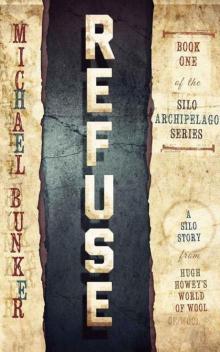 Refuse (The Silo Archipelago Series Book 1)
Refuse (The Silo Archipelago Series Book 1)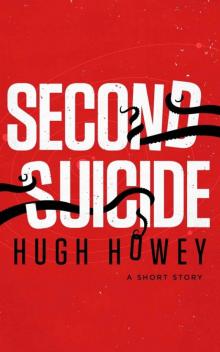 Second Suicide: A Short Story
Second Suicide: A Short Story Machine Learning: New and Collected Stories
Machine Learning: New and Collected Stories The Walk Up Nameless Ridge
The Walk Up Nameless Ridge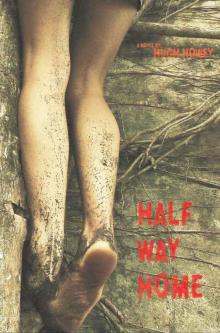 Half Way Home
Half Way Home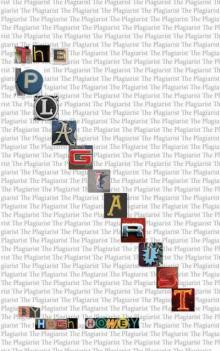 The Plagiarist
The Plagiarist Peace in Amber
Peace in Amber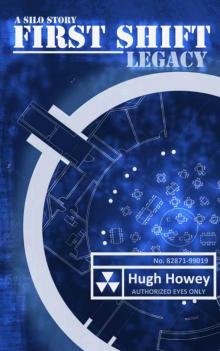 First Shift: Legacy
First Shift: Legacy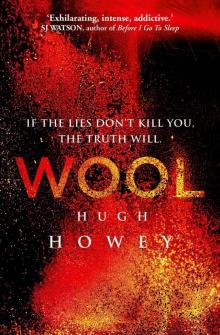 Wool
Wool Glitch
Glitch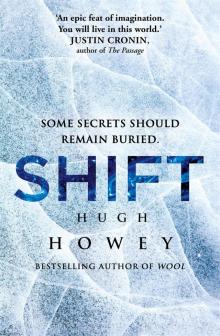 Shift
Shift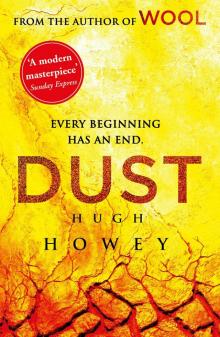 Dust
Dust Molly Fyde and the Land of Light
Molly Fyde and the Land of Light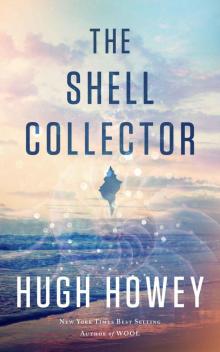 The Shell Collector
The Shell Collector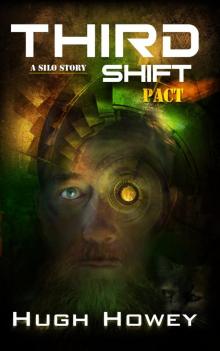 Third Shift: Pact
Third Shift: Pact Molly Fyde and the Fight for Peace
Molly Fyde and the Fight for Peace Sand Omnibus
Sand Omnibus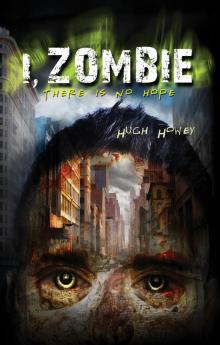 I, Zombie
I, Zombie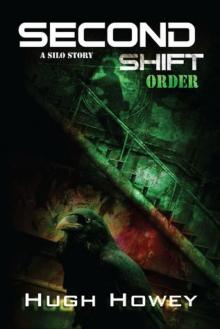 Second Shift: Order
Second Shift: Order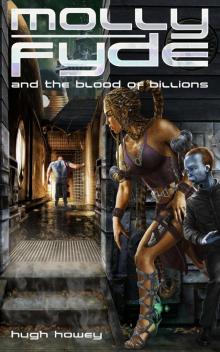 Molly Fyde and the Blood of Billions
Molly Fyde and the Blood of Billions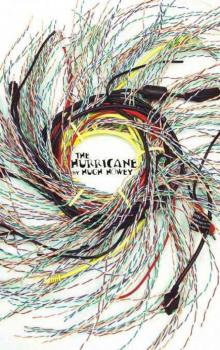 The Hurricane
The Hurricane The Box
The Box Glitch_A Short Story
Glitch_A Short Story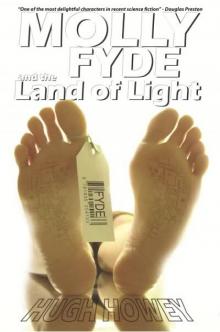 Molly Fyde and the Land of Light tbs-2
Molly Fyde and the Land of Light tbs-2 Machine Learning
Machine Learning Resist
Resist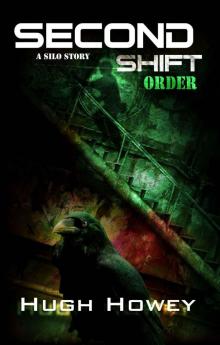 Second Shift - Order (Part 7 of the Silo Series) (Wool)
Second Shift - Order (Part 7 of the Silo Series) (Wool) First Shift - Legacy s-1
First Shift - Legacy s-1 Stories on the Go: 101 Very Short Stories by 101 Authors
Stories on the Go: 101 Very Short Stories by 101 Authors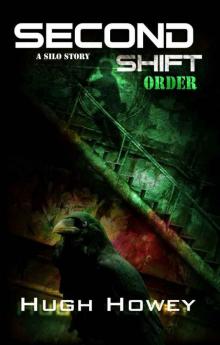 Second Shift - Order s-2
Second Shift - Order s-2 The Robot Chronicles
The Robot Chronicles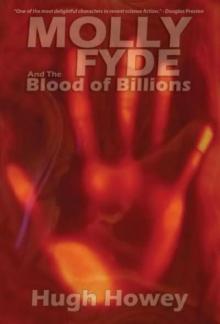 Molly Fyde and the Blood of Billions tbs-3
Molly Fyde and the Blood of Billions tbs-3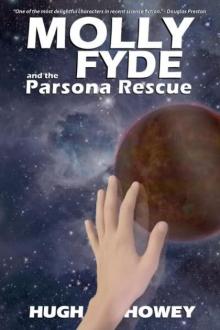 Molly Fyde and the Parsona Rescue tbs-1
Molly Fyde and the Parsona Rescue tbs-1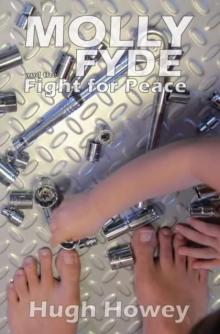 Molly Fyde and the Fight for Peace tbs-4
Molly Fyde and the Fight for Peace tbs-4 Sand
Sand The Walk Up Nameless Ridge (Kindle Single)
The Walk Up Nameless Ridge (Kindle Single) Wool Omnibus Edition (Wool 1 - 5)
Wool Omnibus Edition (Wool 1 - 5) The World of Kurt Vonnegut: Peace in Amber
The World of Kurt Vonnegut: Peace in Amber The Alien Chronicles
The Alien Chronicles Glitch: A Short Story (Kindle Single)
Glitch: A Short Story (Kindle Single)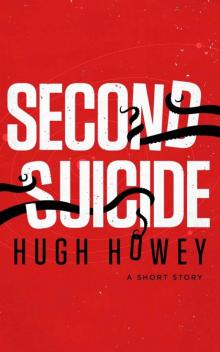 Second Suicide: A Short Story (Kindle Single)
Second Suicide: A Short Story (Kindle Single)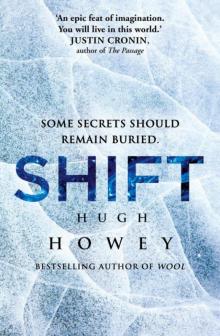 Shift (silo)
Shift (silo)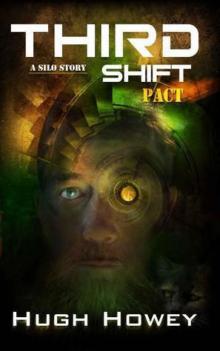 Third Shift - Pact
Third Shift - Pact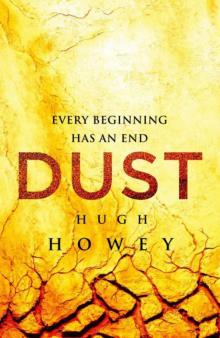 Dust s-9
Dust s-9 First Shift - Legacy (Part 6 of the Silo Series) (Wool)
First Shift - Legacy (Part 6 of the Silo Series) (Wool)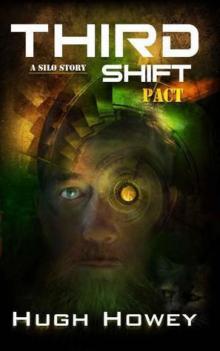 Third Shift - Pact s-3
Third Shift - Pact s-3 Sand: Omnibus Edition
Sand: Omnibus Edition The Box: A Short Story
The Box: A Short Story